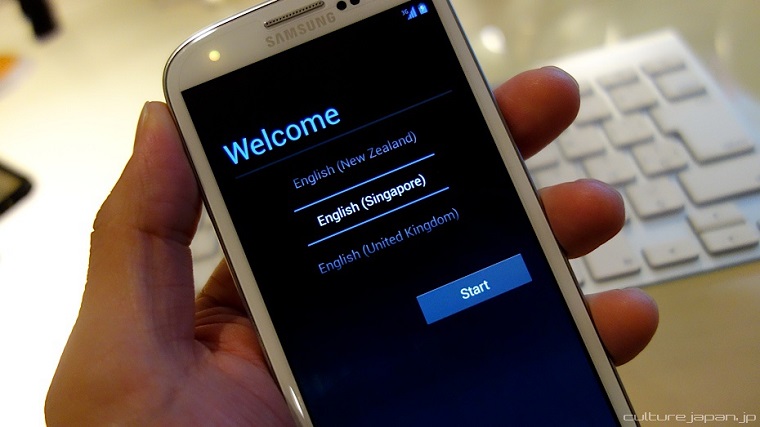The press secretary to Prime Minister Lee Hsien Loong, Chang Li Lin, wrote a rebuttal letter to the New York Times, highlighting the importance of Singaporeans using standard English to communicate amongst ourselves and with the outside world, so as to maintain or improve our economic competitiveness.
This was in response to a widely-read opinion piece on Singlish by local poet and literary critic Gwee Li Sui, which appeared in the international version of NYT, seemingly poking fun at the government’s clampdown and subsequent embrace of the creole language for practical means.
The main argument, from the government's perspective, is that not everyone can code-switch between Standard English and Singlish efficiently without detriment.
So, to heck with Singlish if we can.
Not everyone in Singapore can code-switch
Discussion time: It's true. Not everyone in Singapore can code-switch effectively between speaking Standard English and Singlish.
Sure, a study in 2004 conducted by Lionel Wee, currently a professor in NUS’s Faculty of Arts and Social Sciences (FASS), found that Singaporeans were confident in their code-switching abilities.
But that's just like all drivers assuming they are above average on the road. If everyone is above average, why are there still bad drivers?
Hence, the corruptibility of pristine Standard English is real.
Very broadly, there exists three categories of Singapore English: a) Acrolect, b) Mesolect, and c) Basilect.
All you need to know is that both a) Acrolect and b) Mesolect are regarded as Standard Singapore English, while c) Basilect is considered as Singlish.
Which means that a) Acrolect is the gold standard, while b) Mesolect tends to be a bit more bastardised.
Code-switching assumes speakers have the ability to run the gamut of linguistic ability up and down across the three categories, but the truth is, most Singaporeans rely on b) Mesolect and c) Basilect more often than they acknowledge.
A few examples of b) Mesolect will be sentences that sound like this:
"I want to go shopping centre buy things."
"He always running about attending meetings here and there."
Perfect Singlish, or c) Basilect, on the other hand, goes like this:
"Why you so like that one ah?"
As the metaphor goes: A drop of wine into a barrel of gunk will have little effect on the gunk. A drop of gunk into a barrel of wine will turn the wine into gunk.
So instead of asking, "How well do Singaporeans code-switch?", we should we asking, "Why are we lapsing into non-Standard English?"
Language is an instinct
But first: What are the neuroses of the people within the establishment regarding Singaporeans perpetual embrace of Singlish?
These include a fear that outsiders don't understand us (Goh Chok Tong's point, circa 1999) or that it is just fodder for academics or that it provides comic value.
However, there appears to be a concerted misunderstanding of what Singlish is or what it does.
Because language of the creole and pidgin variety, has long been argued -- since at least two decades ago -- to be the result of human instinct.
This means, just as a spider weaves a web or a beaver builds a dam, language in humans would show itself as it is: A specialised adapation produced by evolution to solve the specific problem of communication among our social hunter-gatherer ancestors.
This also puts language as something quite apart from human invention, such as writing, for example, which is a human invention because it is loaded with a lot of different grammatical rules.
Metalworking, too, for example, qualifies as a human invention.
But a creole language, like Singlish, can exist without a written form.
Children have been known to spontaneously invent a consistent grammatical speech (a creole) even if they grow up among a mixed-culture population speaking an informal trade pidgin with no consistent rules.
We can live with Singlish, mindfully, of course
So what does this all tell us?
Therefore, to insist on Singaporeans speaking Standard English is for them to recognise the need to override instinctual impulses to lapse into a form of speech or language that is almost as second-nature as cussing.
Singlish is a language not governed by strict grammatical rules, but still consistent enough for it to "make sense" and "sound weird" if ang mohs try it on for kicks some times, but the fact is that is an evolving language that is flexible enough to incorporate the best elements of linguistic shorthand once a speaker "gets it".
So, to insist only on one gold standard of English is almost the need to declare our neuroses to keep them in check.
Which will be hard to do all the time.
Related article:
PM Lee’s press secretary rebuts S’porean literary critic’s New York Times article on Singlish
Top image via Flickr
If you like what you read, follow us on Facebook and Twitter to get the latest updates.
If you like what you read, follow us on Facebook, Instagram, Twitter and Telegram to get the latest updates.
